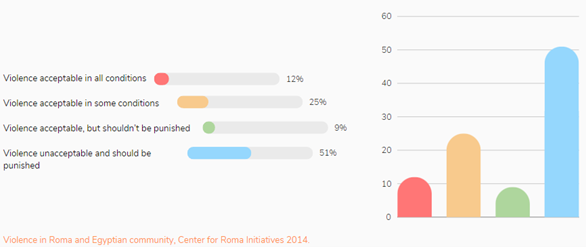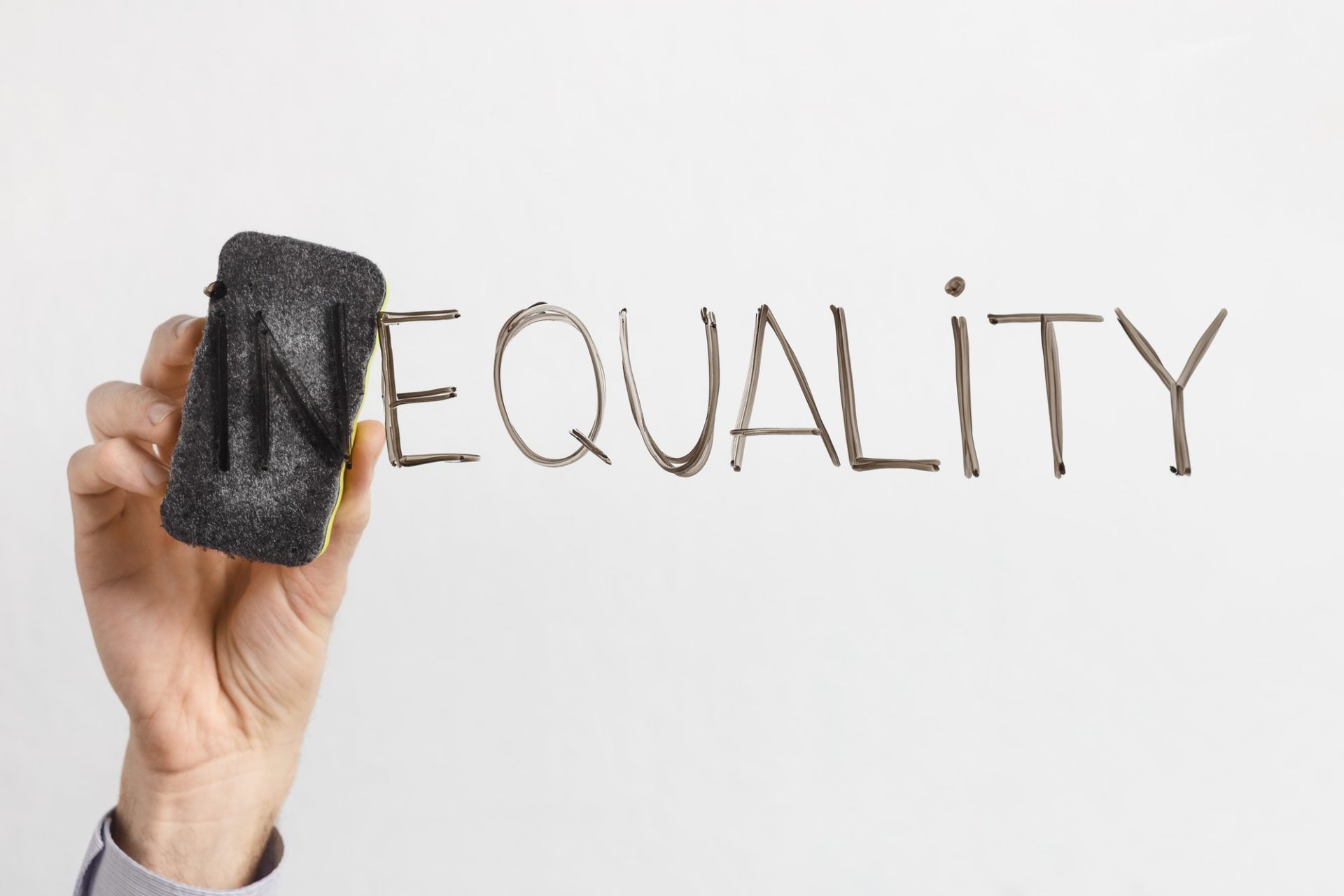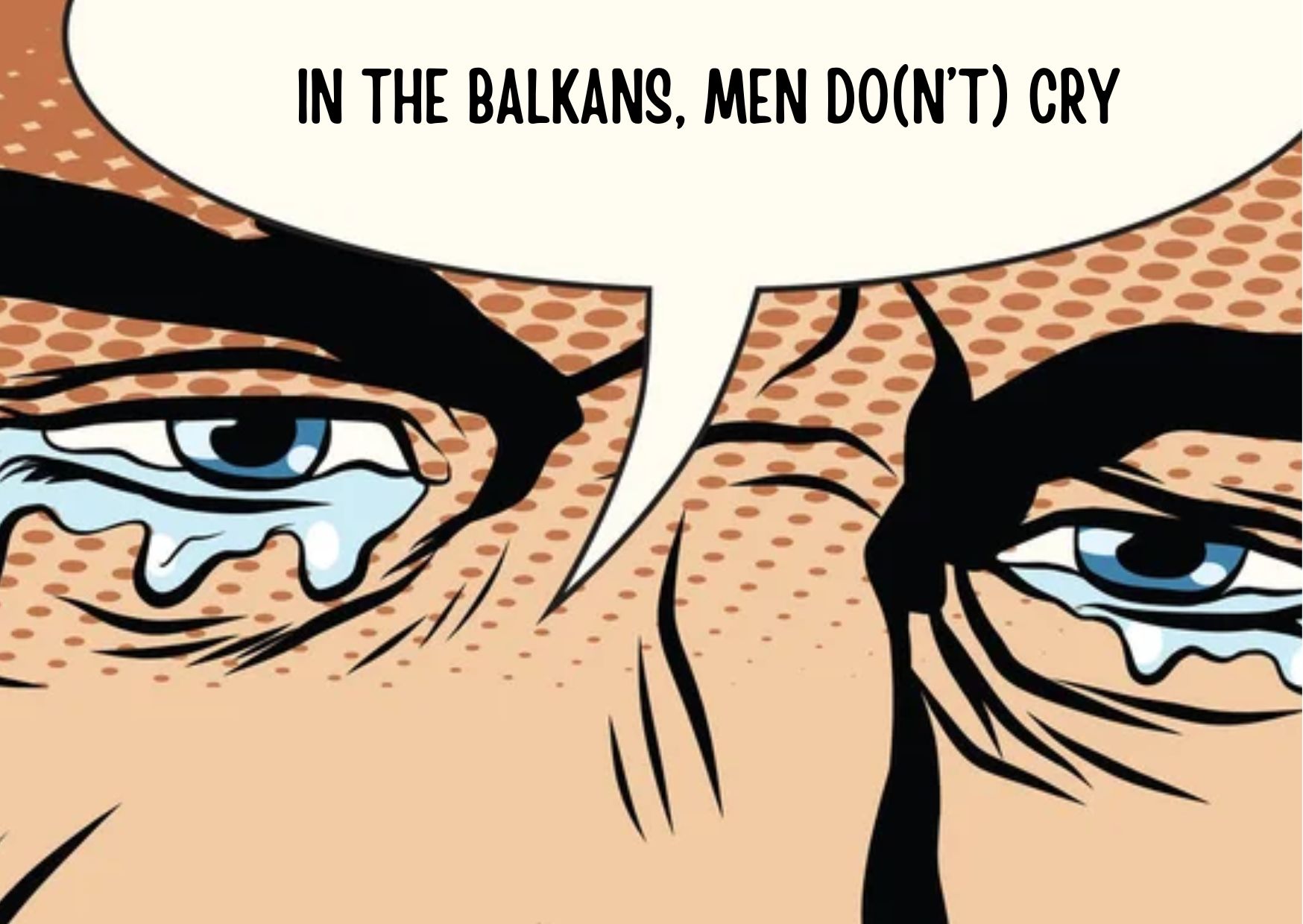"They don't go to school anyway, then they get married, what are you going to do"
That's what we usually hear from girls who are only six years old and just started going to school and probably don't even know what marriage is. This sentence, which I've heard countless times during my school years, was referring to Roma girls and is just one of the stereotypes that Roma women face today.
Domestic violence, arranged marriages, discrimination, and rejection are just a few issues that Roma women in Montenegro fight every day. In Montenegro, as in many societies, traditional family and gender norms play a huge role in maintaining inequality. Expectations according to gender, usually supported by stereotypes and prejudice, limit women's possibilities, especially in education and the job market. The lack of economic independence and political representation of women additionally contributes to maintaining inequality.
UNICEF publication Prevention of Child Marriage in Montenegro shows that in Roma and the Egyptian community, child and arranged marriages aren't a coincidence, but a way of living, that has a long-term consequences, especially for girls and women. Results show that 75,8% of women respondents think that the institutions should be involved in preventing arranged marriages. As for men only half of them (50,7%) think the same. This difference between men's and women's opinions is very problematic. That's why education on these topics is more than necessary. These results paint an image of social norms, traditions, cultural influences, or personal beliefs. Different social and cultural dynamics, as well as individual experiences, can shape the opinions of individuals in terms of gender and women's rights.
Executive coordinator of Center for Roma Initiatives (CRI) Fana Delija, says that it's concerning that none of the ministries haven't financed this organization, although all the projects were concerning arranged marriages, domestic violence, and economic empowerment of women, which is important for social integration of Roma and Egyptian women in society. This shows how the system does not recognize their problems in society.
„This year we have a smaller number of registered underage marriages, but that doesn't mean the problem is non-existent. The organization has reduced the number of coordinators because we lack the funding. We can't identify and report the cases because child marriages depend on our activity on the field“, said Delija.
Unfortunately, the law in these cases is either missing or inadequate. We are all aware that customary law is stronger than the institutional law itself. Institutions are weakened and with them so are women. They say that legislation offers “guidelines“, however, we haven't seen anyone being prosecuted, and even when it happens, a parking ticket would probably be more expensive than someone's penalty for a destroyed life. Girls don't know their future husbands and I highly doubt that a seven-year-old girl knows marriage obligations and what is even marriage.
Violence Goes Unpunished
All factors of violence are connected, which creates a vicious circle. Lack of education, and arranged marriages, are just some of the reasons for excessive violence against women in the Roma community. How can a girl, who hasn’t even finished elementary school know that any type of violence is unacceptable and unjustified?
However, this problem doesn’t occur only in underage marriages. Violence is connected with long-term discrimination against women. According to attitude research on the Roma population by the Center for Roma Initiatives (CRI), respondents think that it is okay to hit a woman – if she deserves it.
According to data from this organization, the usual reasons for domestic violence that women respondents brought up are tradition (32,4%), alcohol (18,4%), drugs (2,2%), poverty (6,5%), lack of education (1,6%) etc. These answers show that women in Roma and Egyptian communities have always had a subordinate position and have always been exposed to some type of violence.
Fana Delija thinks that the overall standing of Roma people has worsened compared to last year, and with that, additionally worsened the position of Roma women. What Delija especially emphasizes, which is usually unheard of, is the lack of sensibility of officers to listen to the victim. They don’t get enough support. Some of the problems also include language barriers and illiteracy. Institutions are also an issue, lack of human resources and an inability to constantly be out in the field. Delija also says that we shouldn’t forget that in the Roma community there is a strong patriarchy and women are forced to believe that they deserve violence in some way.

Thanks to the effort, work, and devotion of feminists and activists, women of the Roma population can sense a brighter future. Every improvement takes time, we can’t expect an overnight change, but the it is important that we start now. If we wait for the right time, we will never find it. When we look back at women fighting for their rights, a fight that still hasn’t stopped, they’ve accomplished so much, and they never waited for anyone to help them and lend a hand. We shouldn’t just stop it, we should cure it – institutions, old ways of resolving problems, and bad customs.









